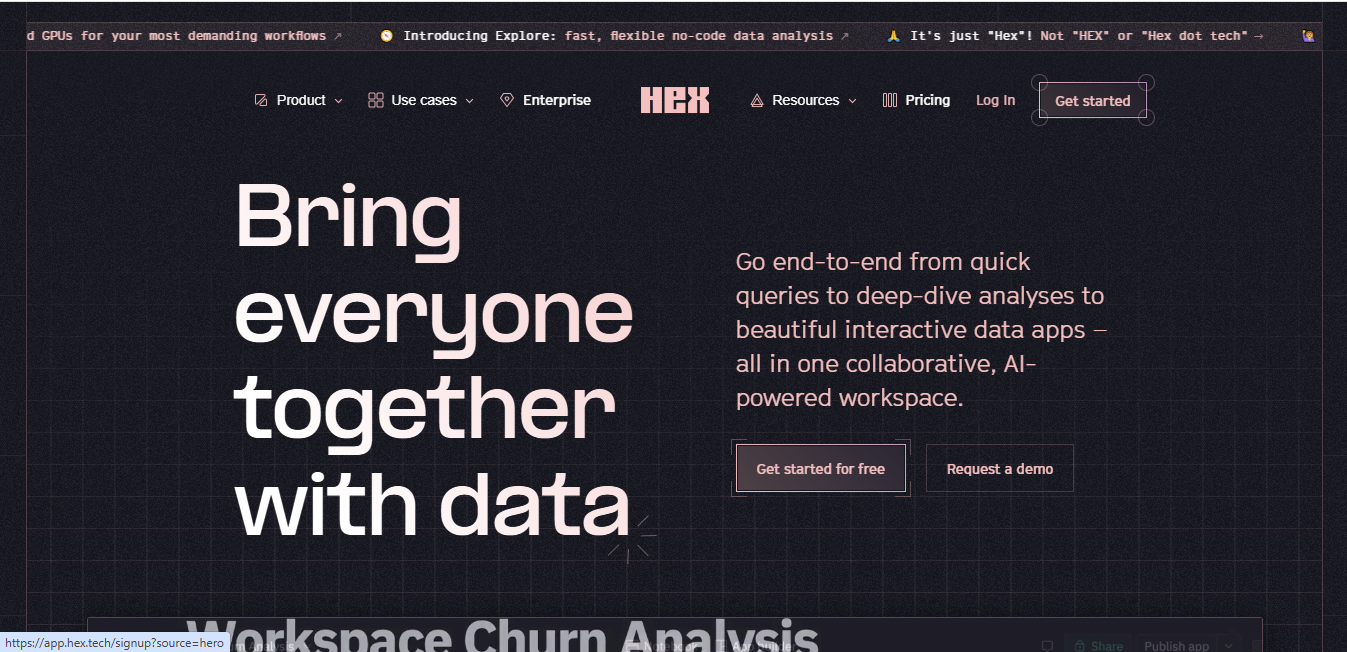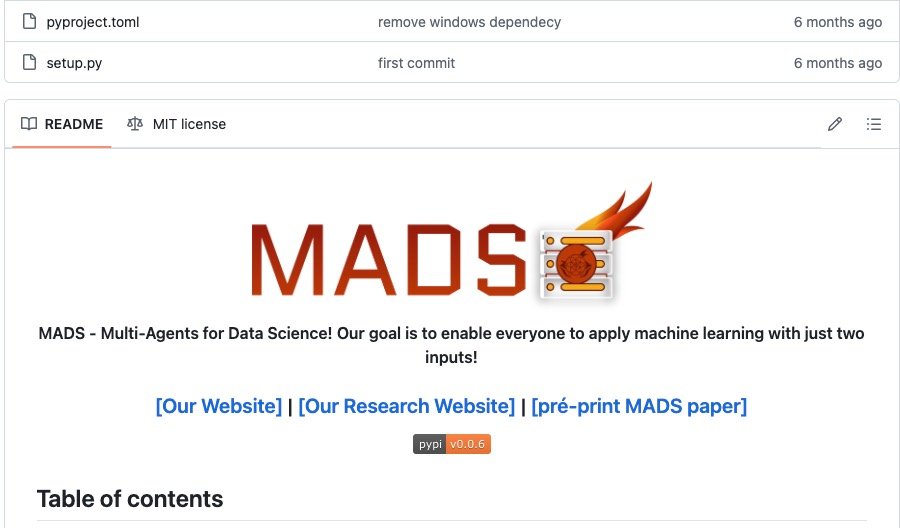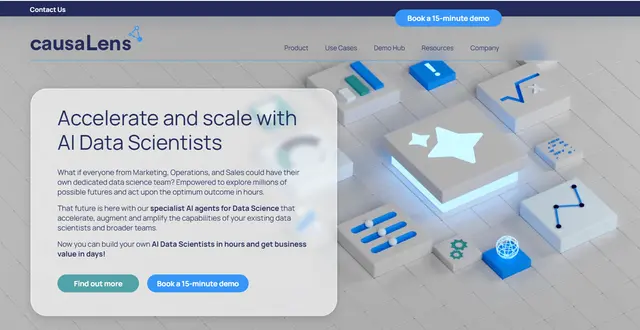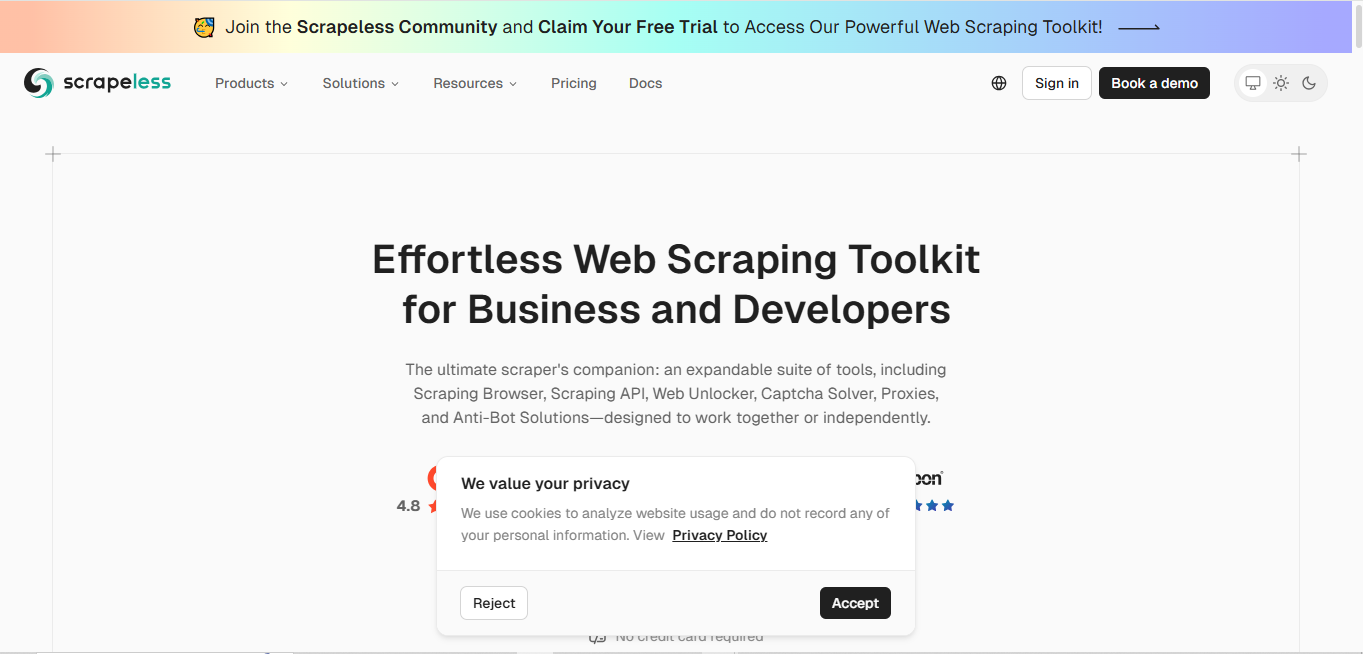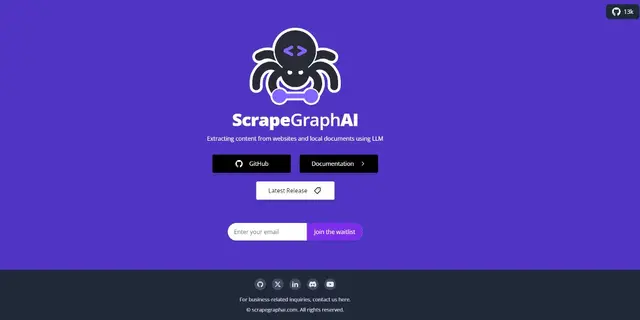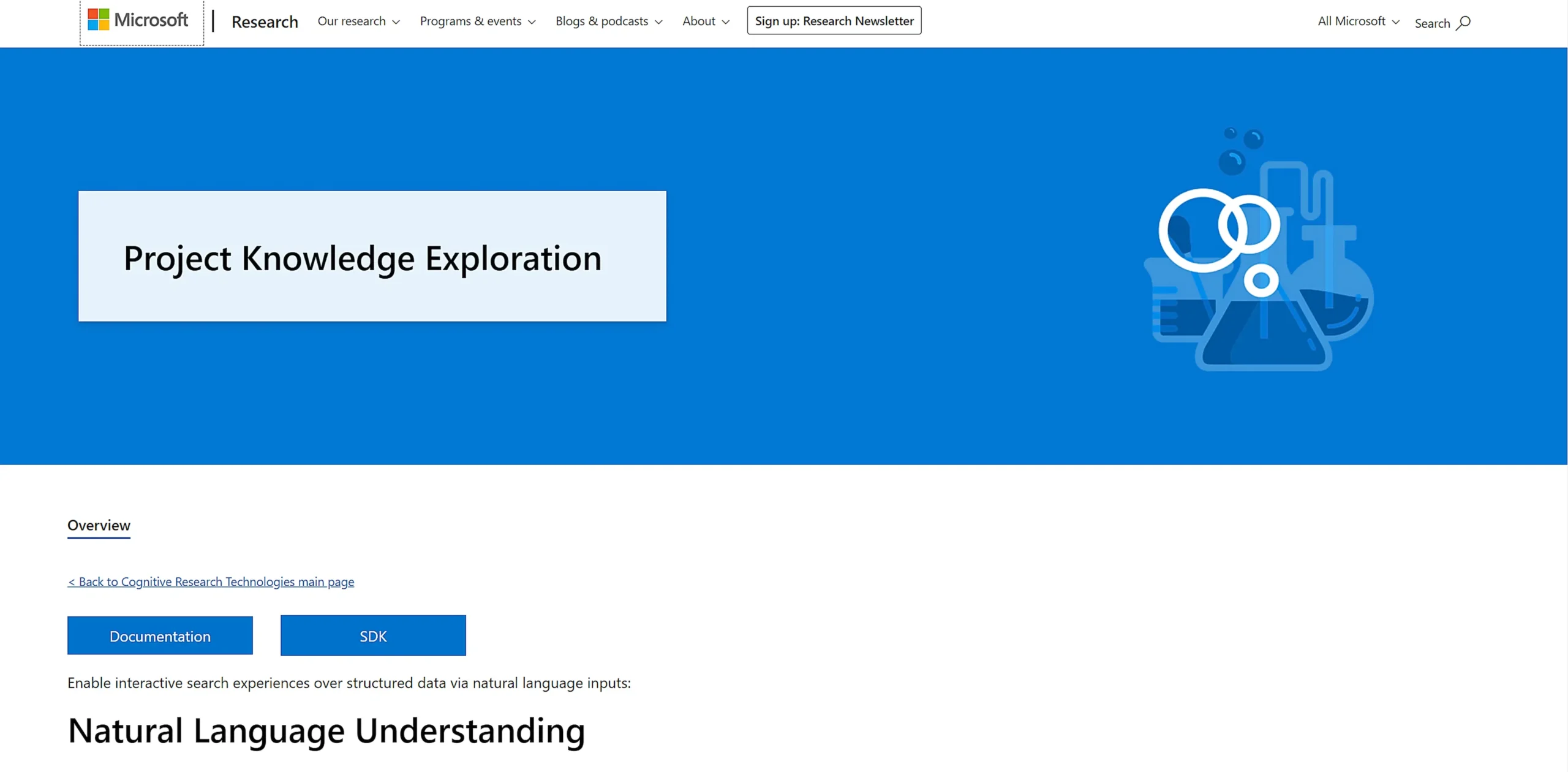
Microsoft Knowledge Exploration
What is Microsoft Knowledge Exploration?
Microsoft Knowledge Exploration is an AI-powered search system that transforms how users interact with structured data. This tool combines natural language processing with intelligent query capabilities to help users discover and analyze information efficiently.
Top Features:
- Natural Language Understanding: interprets regular queries into structured expressions for precise data retrieval.
- Query Auto-Completion: suggests relevant search terms as users type to speed up information discovery.
- Attribute Histograms: creates visual representations of data patterns for better understanding.
Pros and Cons
Pros:
- Data Access: makes complex datasets easy to navigate through natural language queries.
- Interactive Interface: provides real-time suggestions and results as users explore data.
- Versatile Application: works across multiple industries and data types effectively.
Cons:
- Technical Requirements: needs significant computational power for large-scale data processing.
- Learning Curve: requires time to understand and utilize all available features.
- System Integration: may face compatibility issues with existing database systems.
Use Cases:
- Academic Research: helps scholars find and analyze scientific publications and data.
- Data Analysis: enables business analysts to extract insights from large datasets.
- Information Discovery: assists librarians and researchers in organizing knowledge bases.
Who Can Use Microsoft Knowledge Exploration?
- Data Scientists: professionals working with large datasets and complex queries.
- Research Institutions: organizations managing and analyzing academic publications.
- Enterprise Teams: businesses handling structured data and knowledge bases.
Pricing:
- Availability: contact Microsoft sales team for custom pricing options.
- Deployment: available as part of Microsoft's enterprise solutions package.
Our Review Rating Score:
- Functionality and Features: 4.5/5
- User Experience (UX): 4.0/5
- Performance and Reliability: 4.5/5
- Scalability and Integration: 3.5/5
- Security and Privacy: 4.5/5
- Cost-Effectiveness: 3.5/5
- Customer Support: 4.0/5
- Innovation: 4.5/5
- Data Management: 4.0/5
- Customization: 4.0/5
- Overall Rating: 4.1/5
Final Verdict:
Microsoft Knowledge Exploration stands out for its powerful data analysis capabilities and intelligent search functions. While it requires technical expertise, its ability to process complex queries and deliver accurate results makes it valuable for organizations handling large datasets.
FAQs:
1) How does Microsoft Knowledge Exploration handle multiple data formats?
The system processes structured data through customizable grammar rules and schemas, supporting various data formats through proper configuration.
2) What programming languages are supported?
It primarily supports integration with Windows-based systems and provides APIs for common programming languages like C# and Python.
3) Can it work with existing database systems?
Yes, but requires proper configuration and potentially custom connectors for specific database systems.
4) What's the minimum system requirement?
Requires Windows 8 or later, 64-bit architecture, and sufficient RAM for data processing needs.
5) Is cloud deployment available?
Yes, it can be deployed on Microsoft Azure cloud infrastructure with proper enterprise licensing.
Stay Ahead of the AI Curve
Join 76,000 subscribers mastering AI tools. Don’t miss out!
- Bookmark your favorite AI tools and keep track of top AI tools.
- Unblock premium AI tips and get AI Mastery's secrects for free.
- Receive a weekly AI newsletter with news, trending tools, and tutorials.


